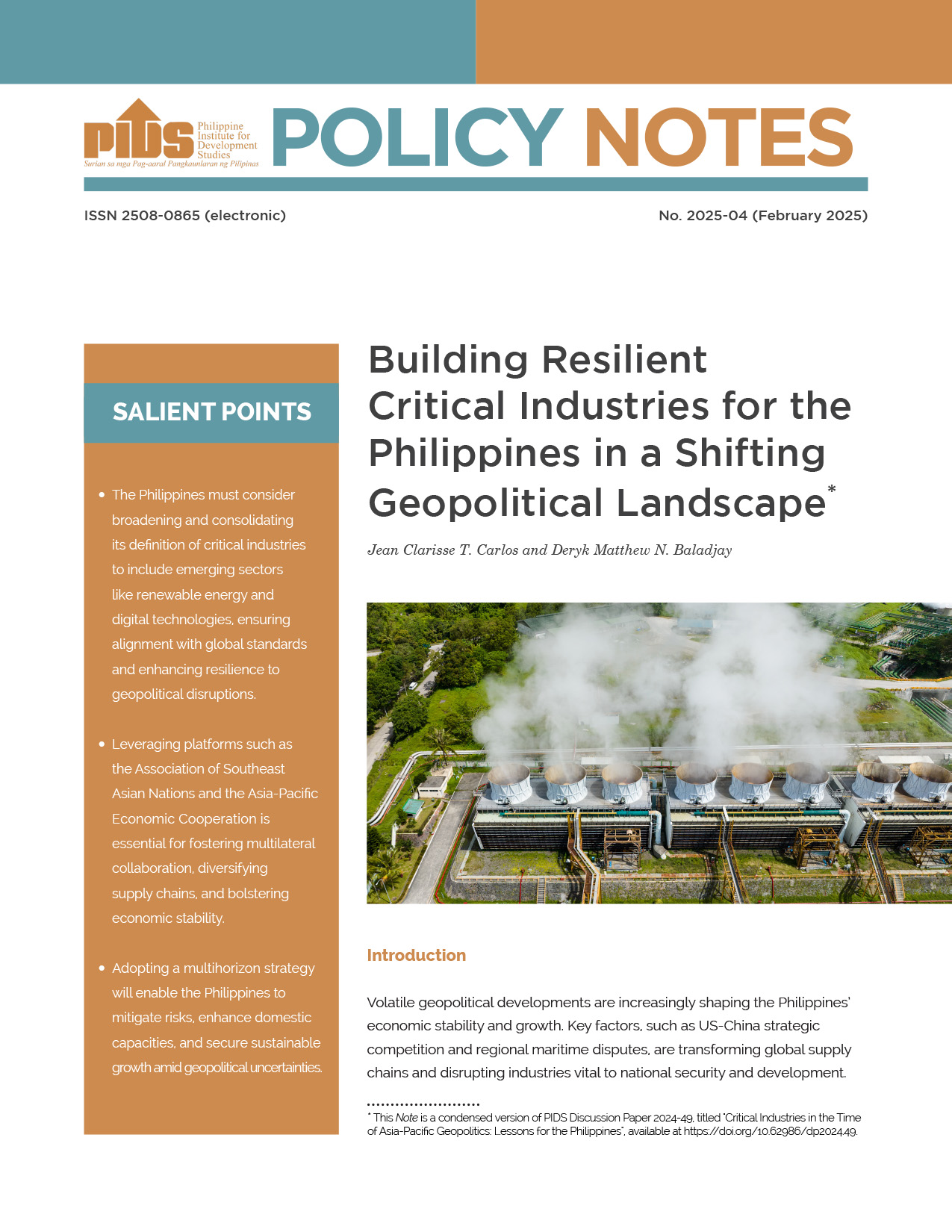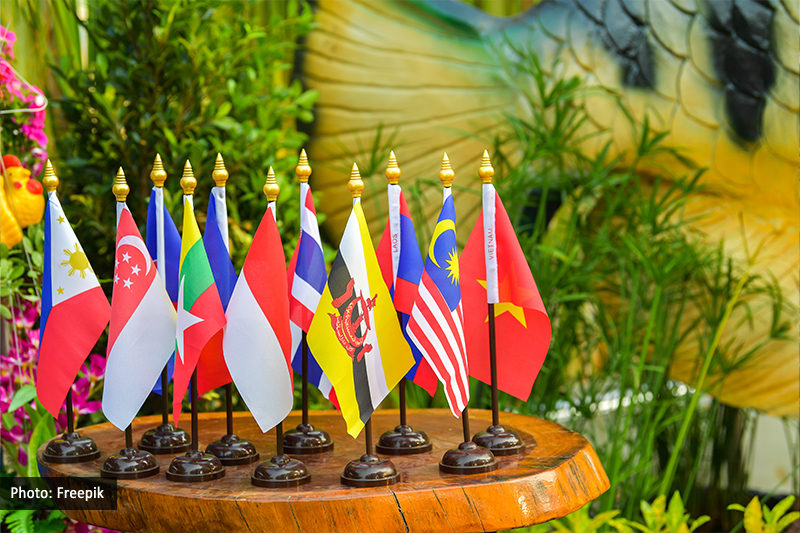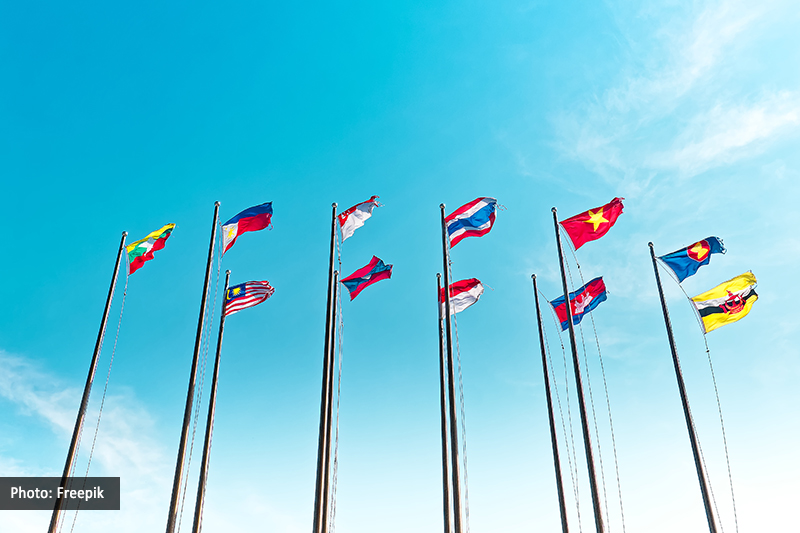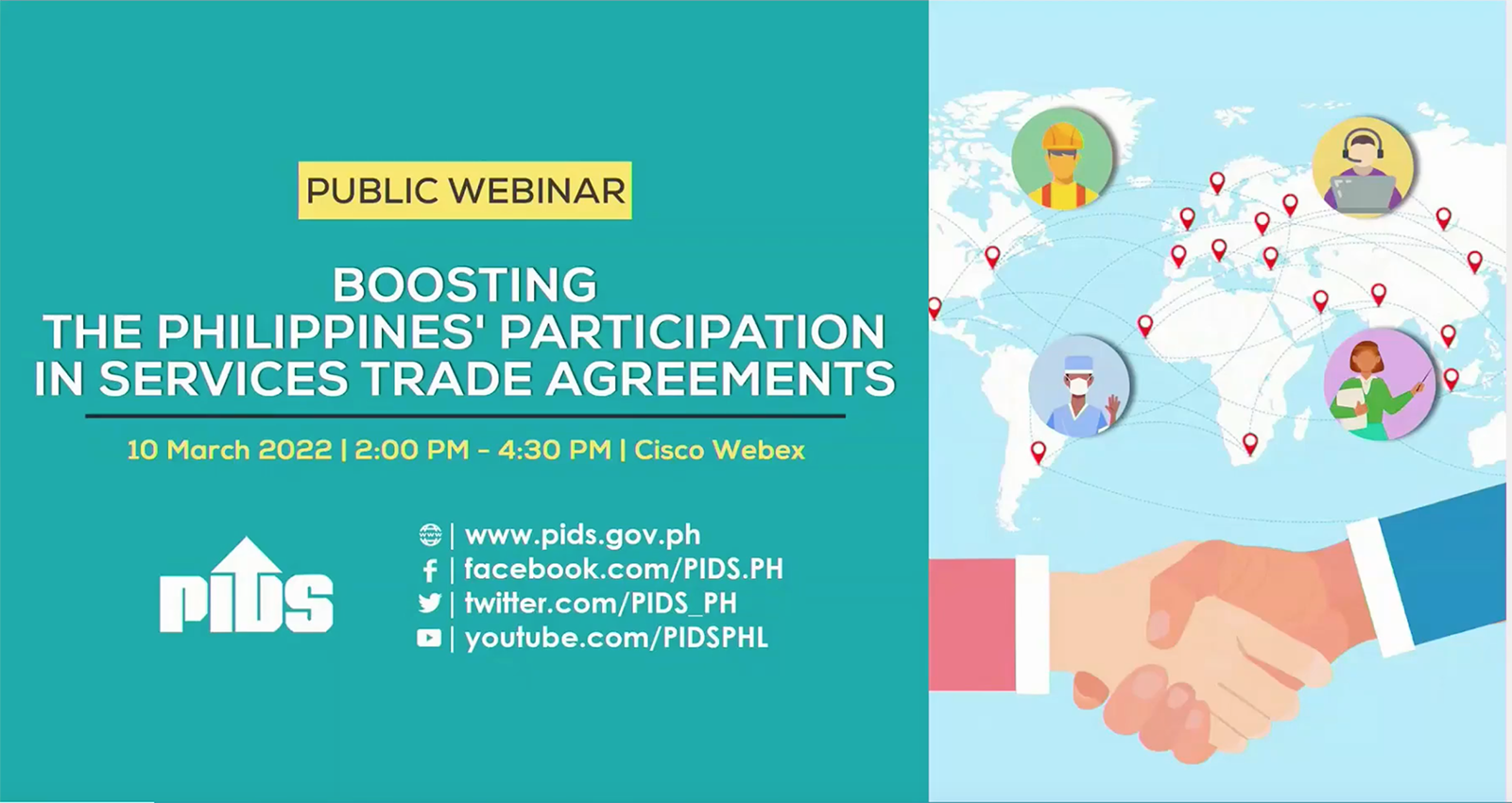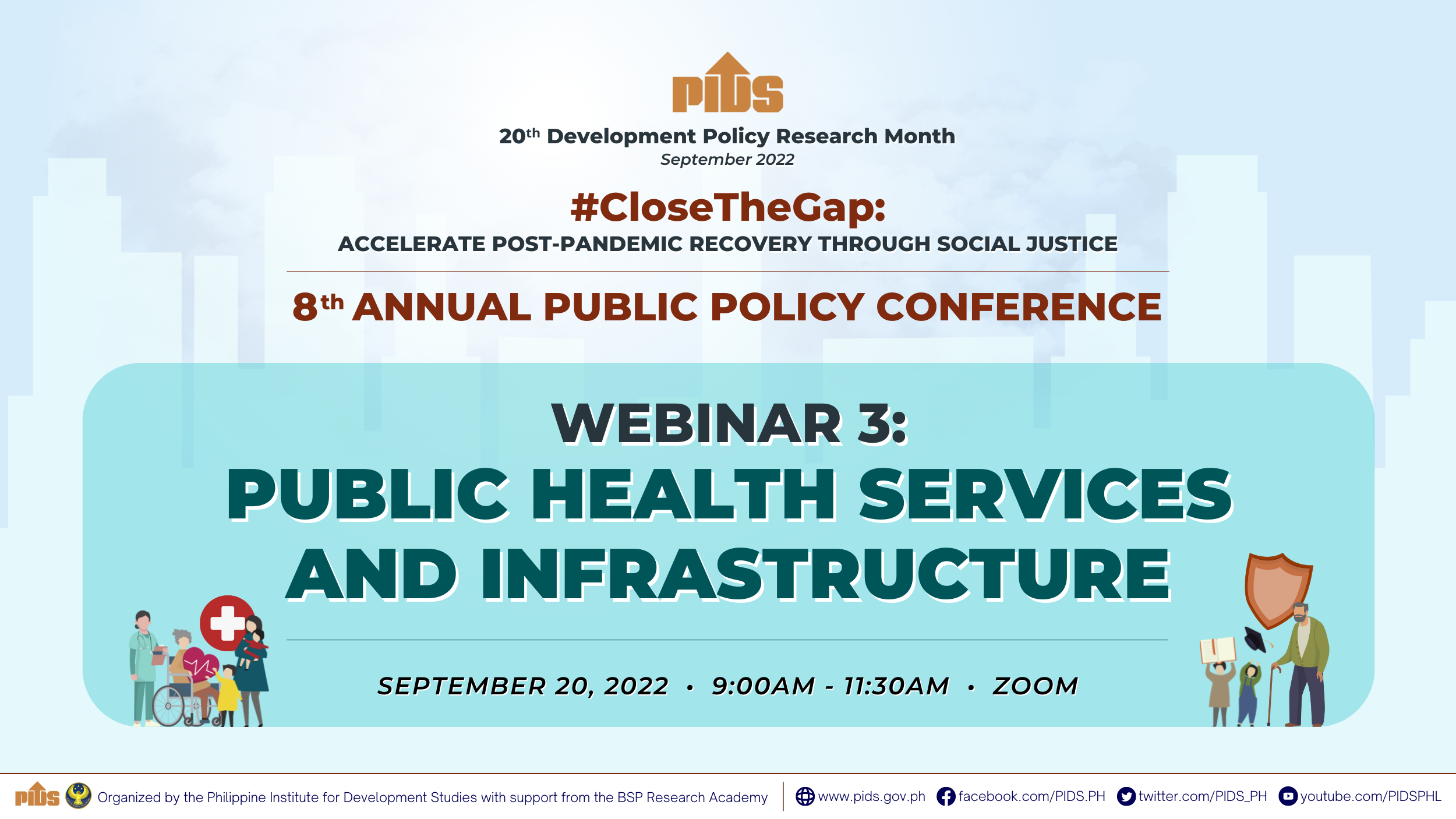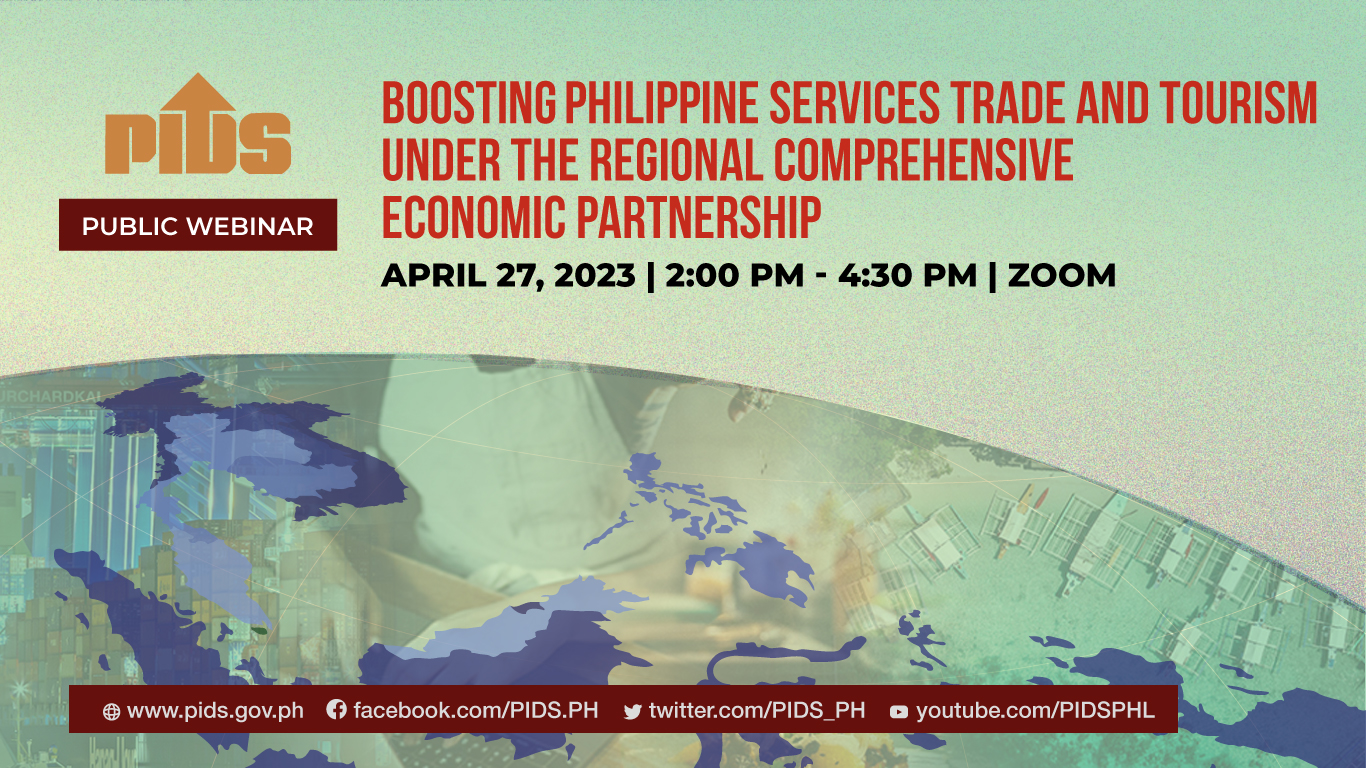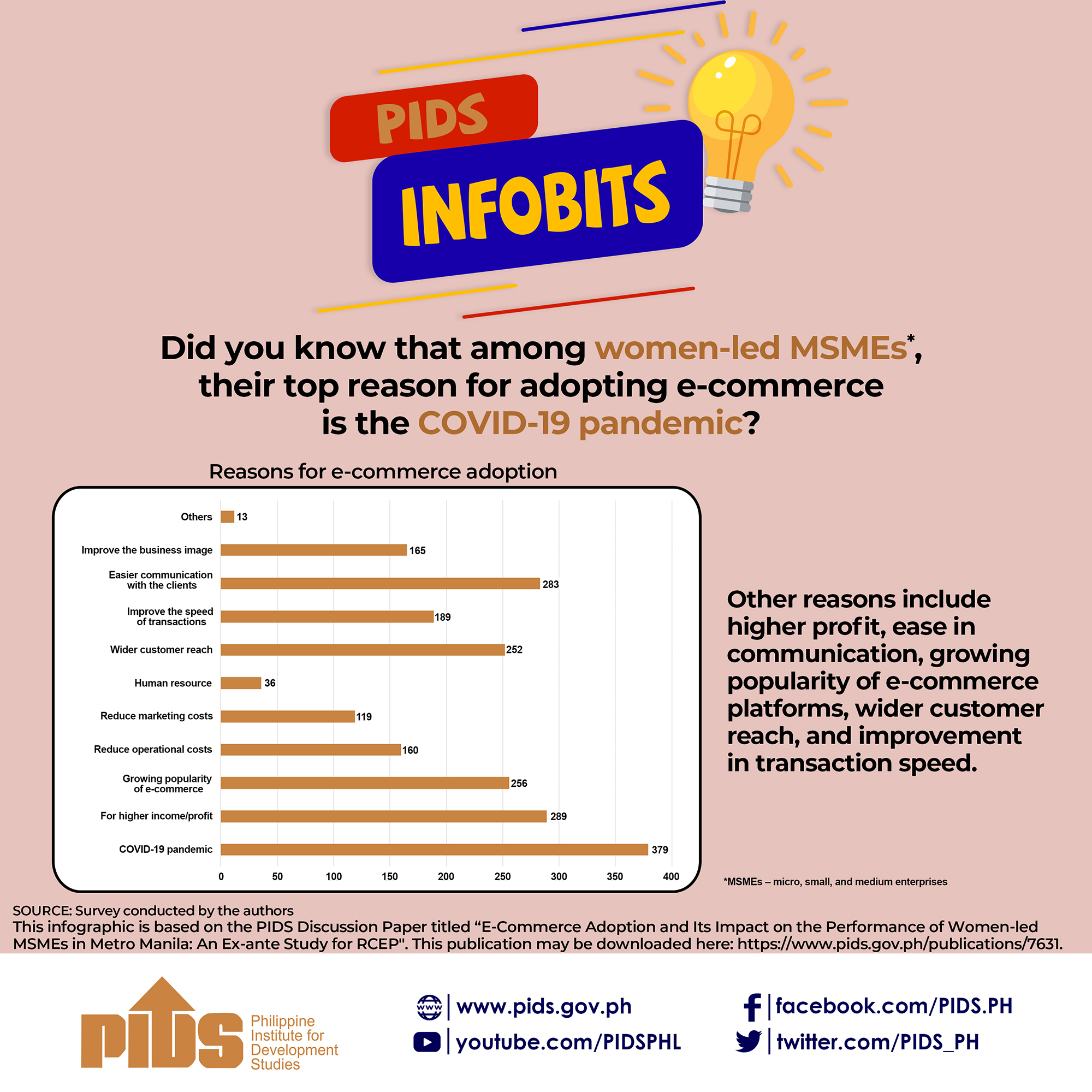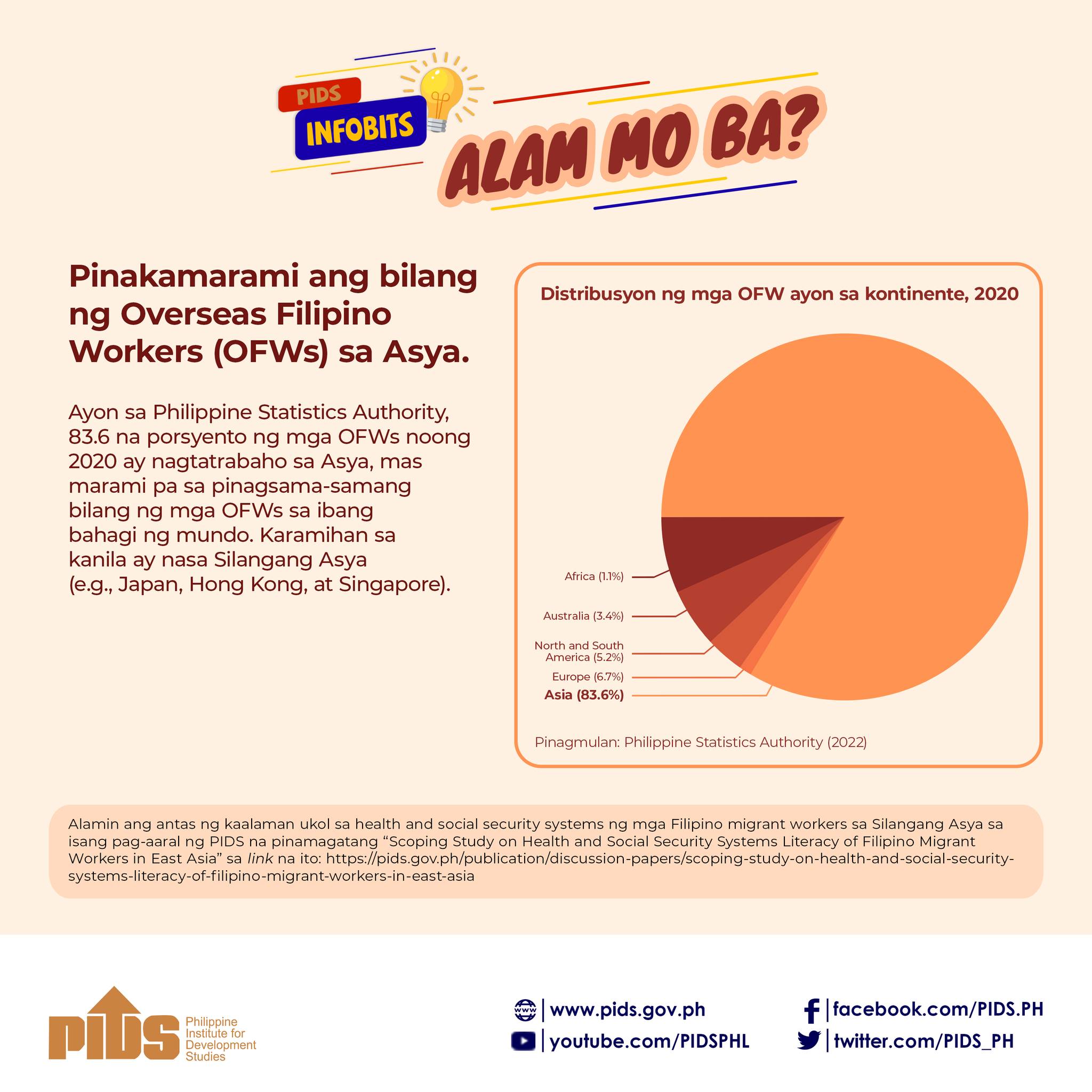The Philippines has vast potentials to be the heart of services trade in Asia Pacific.
A study authored by Dr. Ramonette Serafica, research consultant of state think tank Philippine Institute for Development Studies (PIDS), underscores the vast opportunities left untapped in the services sector.
The services sector has significantly contributed to the Philippine economy in increasing employment, investment, and revenue generation. It represents 44.15 percent in gross exports in terms of service value added, Serafica said. "However, there are still vast opportunities left untapped to fully exploit its role in the economy."
The country's strong information technology-business process outsourcing industry places the country in a comparative advantage as a net exporter of services, Serafica said.
"The main source of the country's comparative advantage is its pool of skilled, semiskilled, and low-skilled workers," Serafica said. Moreover, technological changes in information and communication technology and the business models of multinational companies that are leaned toward outsourcing and offshoring of services have leveraged the country's human capital.
Serafica added that the Philippines has a strong potential to become a major hub in ship repair because of its strong labor force. Other plus factors are its geographical location which is ideal as a logistics hub for cargo and its deep seashores that make the country suitable as a ship repair hub.
The growing numbers of overseas Filipinos across the globe, more than 10 million to date, are a natural market for Philippine services, Serafica added.
Despite the country's decades of experience as a supplier of labor, there should be a comprehensive services export initiative to help facilitate the overseas expansion of other services, Serafica said. There should be "an umbrella program dedicated to services exports that would help create the Philippines as a valuable brand in services trade."
Serafica noted that based on the World Bank's services trade restrictiveness index (STRI), the Philippines has "one of the most restrictive policy environments for services." STRI is a gauge of a country's degree of discriminatory restrictions in financial services, telecommunications, retail, transport, and professional services. "Among the sectors included in the index, it is in professional services where the extent of restrictiveness [of the Philippines]is highest," Serafica said. In addition to restrictive policies, anticompetitive business practices also exist, she noted.
Serafica suggested that a government policy on innovation and human resource development (HRD) be implemented to further create an environment conducive to improving competitiveness.She cited a World Bank report where many countries both developed and developing are using innovation as the foundation of competitive industries from agriculture to services. This innovation involves the use of new technologies and practices as well as HRD policies that will ensure a high-quality labor force and a favorable labor market performance.
For more information, you may download the full study at http://dirp3.pids.gov.ph/webportal/CDN/PUBLICATIONS/pidspn1407.pdf.
A study authored by Dr. Ramonette Serafica, research consultant of state think tank Philippine Institute for Development Studies (PIDS), underscores the vast opportunities left untapped in the services sector.
The services sector has significantly contributed to the Philippine economy in increasing employment, investment, and revenue generation. It represents 44.15 percent in gross exports in terms of service value added, Serafica said. "However, there are still vast opportunities left untapped to fully exploit its role in the economy."
The country's strong information technology-business process outsourcing industry places the country in a comparative advantage as a net exporter of services, Serafica said.
"The main source of the country's comparative advantage is its pool of skilled, semiskilled, and low-skilled workers," Serafica said. Moreover, technological changes in information and communication technology and the business models of multinational companies that are leaned toward outsourcing and offshoring of services have leveraged the country's human capital.
Serafica added that the Philippines has a strong potential to become a major hub in ship repair because of its strong labor force. Other plus factors are its geographical location which is ideal as a logistics hub for cargo and its deep seashores that make the country suitable as a ship repair hub.
The growing numbers of overseas Filipinos across the globe, more than 10 million to date, are a natural market for Philippine services, Serafica added.
Despite the country's decades of experience as a supplier of labor, there should be a comprehensive services export initiative to help facilitate the overseas expansion of other services, Serafica said. There should be "an umbrella program dedicated to services exports that would help create the Philippines as a valuable brand in services trade."
Serafica noted that based on the World Bank's services trade restrictiveness index (STRI), the Philippines has "one of the most restrictive policy environments for services." STRI is a gauge of a country's degree of discriminatory restrictions in financial services, telecommunications, retail, transport, and professional services. "Among the sectors included in the index, it is in professional services where the extent of restrictiveness [of the Philippines]is highest," Serafica said. In addition to restrictive policies, anticompetitive business practices also exist, she noted.
Serafica suggested that a government policy on innovation and human resource development (HRD) be implemented to further create an environment conducive to improving competitiveness.She cited a World Bank report where many countries both developed and developing are using innovation as the foundation of competitive industries from agriculture to services. This innovation involves the use of new technologies and practices as well as HRD policies that will ensure a high-quality labor force and a favorable labor market performance.
For more information, you may download the full study at http://dirp3.pids.gov.ph/webportal/CDN/PUBLICATIONS/pidspn1407.pdf.

